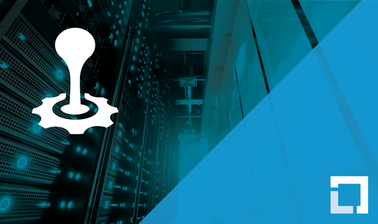- Level Foundation
- Ratings
- Duration 11 hours
- Course by The Linux Foundation
- Total students 52,592 enrolled
-
Offered by

About
New to the cloud and not sure where to begin? This introductory course, taught by cloud experts from The Linux Foundation, will help you grasp the basics of cloud computing and comprehend the terminology, tools and technologies associated with today's top cloud platforms.
Understanding cloud technologies tops the list of most important skills for any developer, system administrator or network computing professional seeking a lucrative career in technology. However, getting started and researching all things cloud can be complicated and time consuming. This course maps out the entire cloud landscape and explains how various tools and platforms fit together.
Experts from The Linux Foundation can help guide you step-by-step as you begin to navigate the cloud. They host some of the world's leading open source cloud projects and provide training and networking opportunities to educate a talent pool to support those projects, and is a respected, neutral, non-profit education source to provide training for anyone learning how to build and manage cloud infrastructure.
This course gives you a primer on cloud computing and the use of open source software to maximize development and operations. Topics covered include:
- Next-generation cloud technologies: Learn about cloud and container technologies like Docker, Cloud Foundry, and Kubernetes, as well as the tooling around them.
- Scalable and performant compute, storage and network solutions: Get an overview of software defined storage and software defined networking solutions.
- Solutions employed by companies to meet their business demands: Study up on DevOps and continuous integration practices, as well as the deployment tools available to architects to meet and exceed their business goals.
No previous cloud experience is required for this course. "Introduction to Cloud Infrastructure Technologies" gives you the knowledge and tools to make smart decisions about which cloud services and applications to use depending on your needs.
What you will learn
- Basics of cloud computing
- Characteristics of the different cloud technologies
- Working knowledge on how to choose the right technology stack for your needs
Skills you learn
- Open-Source Software
- Cloud Technologies
- Open Source Technology
- Cloud Infrastructure
- Cloud Foundry
- Kubernetes
- Cloud Computing
- Cloud Services
- Docker (Software)
- Tooling
- Cloud Security Infrastructure
- Network Computing
- Software Defined Networking (SDN)
- Continuous Integration
- Linux
- Operations
- OpenStack
- DevOps
Syllabus
- Welcome!
- 1. Virtualization
- 2. Infrastructure as a Service (IaaS)
- 3. Platform as a Service (PaaS)
- 4. Containers
- 5. Containers: Micro OSes for Containers
- 6. Containers: Container Orchestration
- 7. Unikernels
- 8. Microservices
- 9. Software-Defined Networking and Networking for Containers
- 10. Software-Defined Storage and Storage Management for Containers
- 11. DevOps and CI/CD
- 12. Tools for Cloud Infrastructure: Configuration Management
- 13. Tools for Cloud Infrastructure: Build & Release
- 14. Tools for Cloud Infrastructure: Key-Value Pair Store
- 15. Tools for Cloud Infrastructure: Image Building
- 16. Tools for Cloud Infrastructure: Debugging, Logging, and Monitoring for Containerized Applications
- 17. Service Mesh
- 18. Internet of Things (IoT)
- 19. Serverless Computing
- 20. Distributed Tracing
- 21. How to Be Successful in the Cloud
- Final Exam (Verified Track Only)
Auto Summary
Are you new to cloud computing and unsure where to start? "Introduction to Cloud Infrastructure Technologies" is the perfect foundational course to help you dive into the world of cloud computing. Offered by edX and taught by esteemed experts from The Linux Foundation, this course is designed to demystify cloud technologies and terminology, providing you with a comprehensive understanding of today's leading cloud platforms. This course is essential for developers, system administrators, and network computing professionals aiming to enhance their skills and pursue prosperous careers in technology. Throughout the 11-week duration, you will explore a wide range of topics, including next-generation cloud technologies such as Docker, Cloud Foundry, and Kubernetes, as well as software-defined storage and networking solutions. Additionally, you'll gain insights into DevOps practices and continuous integration tools that companies use to achieve their business objectives. No prior experience in cloud computing is needed, making this course accessible to beginners. By the end of this journey, you'll be equipped with the knowledge to make informed decisions about cloud services and applications suited to your needs. Enroll in the "Introduction to Cloud Infrastructure Technologies" course under the Starter subscription option and take the first step towards mastering cloud infrastructure. This course is an invaluable resource for anyone eager to learn how to build and manage cloud environments effectively.

Chip Childers

Neependra Khare


